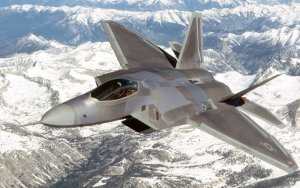Military budgets in the United States have long been sacrosanct. Even while funding for social programs is cut, military spending has generally been safe. There are lots of reasons for this. Republicans generally favor higher military spending, so are loathe to cut defense spending. Democrats are perpetually fearful that Republicans will paint them as soft on defense, so they similarly don’t generally want to cut military spending. On top of that, defense programs Consequently, defense spending has historically been a bipartisan issue, one of the few areas where Congressional Republicans and Democrats agree. Indeed, they agree so much, that they often overspend. The 2010 defense budget, for example, was $680 billion (not including “emergency” allocations for ongoing wars in Iraq and Afghanistan. The $680 billion base budget was $16 billion more than the Defense Department requested… In other words, the Department of Defense—the military itself—said we need $664 billion to do our job (and anyone who’s ever studied the politics of the budget…or made a budget themselves…knows that this figure likely included padding to ensure the real amount they needed would be allocated even if trimmed a bit) and Congress said, no, we think you need more…how about $680 billion instead? The net effect of this trend is a huge defense budget. In 2009, the United States accounted for 46.5 percent of all military spending worldwide. In other words, the United States spends about as much on its defense as all other countries in the world combined. It spends six times as much on its national defense as the second-ranked country (China, which spends approximately $100 billion per year on national defense). Unfortunately much of this spending is directed towards threats from the Soviet Union. Ballistic missile defense programs, stealth fighter programs, and the like are all intended to address a threat which no longer exists. Bill Gates’ proposed changes to the Pentagon’s budget are intended not to cut defense spending but to shift priorities. These reforms include cutting the number of flag officers (generals and admirals), reducing the number of civilian contractors, and asking the armed services to look for internal savings which they will be able to keep and reinvest in other priorities. Gates hopes, for example, to allocate spending away from the F-22 Raptor program, which the Pentagon has long asked to eliminate, and shift it towards drone procurement. But Gates faces an uphill battle. Despite calls from the Pentagon to cut the F-22 program, Congress has insisted on increased procurements and expanded funding for the program. Does Congress fear a Soviet invasion? Is Red October just around the corner? No. While members of Congress couch their allocations to the F-22 program in terms of national defense, the real issue is likely pork-barrel politics. Components of the F-22 are produced in 44 states, providing high paying jobs in Congressional districts across the country. Other big-ticket defense projects have been difficult to kill for similar reasons. So while Gates may make some progress in restructuring defense spending, it’s unlikely that real shifts in defense spending intended to address the needs of the twenty-first century will take place. In critiquing the F-22 program, Gates noted that the fighter had not been used in a single operation in Iraq or Afghanistan. Indeed, the fighter jet had yet to see combat operations anywhere. Why let that get in the way? In 2004, then Secretary of Defense Don Rumsfeld, responding to criticism from soldiers in Iraq complaining about poor or missing combat equipment famously responded, “As you know, you go to war with the Army you have. They’re not the Army you might want or wish to have at a later time.” But as long as the politics of defense spending continue to be guided as they have, we will never have the army we want. The defense challenges faced by the United States in the twenty-first century do not require expensive fighter jets designed to fight the Soviet Union. It requires more flexible forces working in conjunction with humanitarian, educational, and diplomatic initiatives.
About This Blog
Look beyond today’s headlines with our analysis of world politics!Archives
- December 2015
- November 2015
- October 2015
- September 2015
- August 2015
- July 2015
- June 2015
- May 2015
- April 2015
- March 2015
- February 2015
- January 2015
- August 2014
- July 2014
- June 2014
- May 2014
- April 2014
- March 2014
- February 2014
- January 2014
- December 2013
- November 2013
- October 2013
- September 2013
- August 2013
- July 2013
- June 2013
- May 2013
- April 2013
- March 2013
- February 2013
- January 2013
- December 2012
- November 2012
- October 2012
- September 2012
- August 2012
- June 2012
- May 2012
- April 2012
- March 2012
- February 2012
- January 2012
- December 2011
- November 2011
- October 2011
- September 2011
- August 2011
- July 2011
- June 2011
- May 2011
- April 2011
- March 2011
- February 2011
- January 2011
- December 2010
- November 2010
- October 2010
- September 2010
- August 2010
- July 2010
- June 2010
- May 2010
- April 2010
- March 2010
- February 2010
- January 2010
- December 2009
- November 2009
- October 2009
- September 2009
- August 2009
- July 2009
- June 2009
- May 2009
- April 2009
- March 2009
- February 2009
- January 2009
- December 2008
- November 2008
- October 2008
- September 2008
- August 2008
- July 2008


You must be logged in to post a comment.